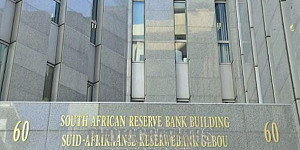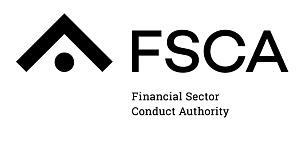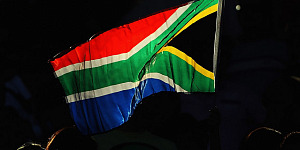
The South African Reserve Bank will review its forecast for economic growth after Standard & Poor’s cut the nation’s credit rating and because of strikes in the mining industry.
The government must take steps to correct the problems highlighted by S&P that led to the downgrade on Oct. 12, Deputy Reserve Bank Governor Daniel Mminele said today in Tokyo, according to a copy of his speech posted on the bank’s website. S&P cut the rating one level to BBB with a negative outlook, citing the pressure strikes have placed on the government to boost social spending, reducing the ability to narrow the budget gap. Moody’s Investors Service cut the nation’s rating last month.
“The rand appears to have decoupled from the euro movements, taking its cue instead from domestic developments, including the credit rating downgrades, widespread strike action and the current account deficit,” Mminele said. “Growth forecasts will most likely need to be revisited,”
The rand has plunged 7.1 percent, the worst of the 16 major currencies tracked by Bloomberg, since strikes in the mining sector began in August, at the same time as shrinking factory output is limiting economic growth on the continent’s largest country.
Reserve Bank Governor Gill Marcus cut the nation’s growth forecast to 2.6 percent on Sept. 20 from 2.7 percent and Finance Minister Pravin Gordhan said he will do the same on Oct. 25 when he presents the mid-term budget to Parliament in Cape Town. Gross domestic product expanded 3.1 percent last year.
Wage Settlements
The bank is monitoring whether recent wage settlements quicken inflation, Mminele says. Lonmin Plc., the world’s third- largest producer of platinum, agreed to raise wages for about 3,000 of its workers by 22 percent, ending a six-week strike that began on Aug. 10. The inflation rate rose to 5 percent in August from 4.9 percent in July.
Since the Lonmin strike, workers at Anglo American Platinum Ltd., Gold Fields Ltd. and transport workers have held walkouts. The transport workers ended their three-week strike demanding more than 10 percent annual wage increases last week.
“While there are at this stage no indications of a broad- based, sharp acceleration in wages as a result of recent protests, the Reserve Bank will have to carefully monitor possible spillovers of any such development into prices and price expectations,” Mminele said.





































